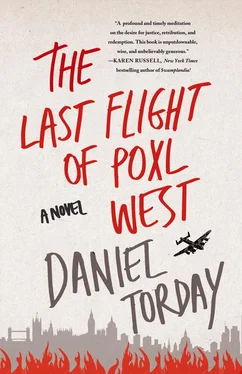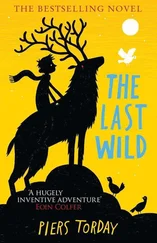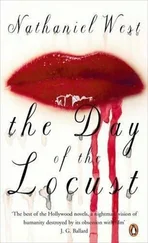The writer of the piece said my uncle had never flown the sorties he claimed to have flown during the firebombing of Hamburg. He’d never been in a lightning cloud over Lübeck. The writer had gone up to the RAF Museum in Hendon and found no record of a Poxl West ever having flown sorties in the Lancaster bomber S-Sugar. There were solid records of the crew from that plane, and no Poxl West was on the ledger. Another man, albeit a man with the surprisingly Jewish-sounding name Herman Janowitz, was listed as the plane’s pilot. When the reporter put this to Poxl, seeking a quote for his story, my uncle had broken down immediately.
The piece included a long, difficult description of Poxl’s behavior — erratic outbursts over perfectly made and viscerally described Pimm’s cups and cucumber sandwiches at his apartment in Manhattan. The writer had the gall to ask him to take off his trademark porkpie hat and show the lightning scar atop his head. Poxl demurred and was asked again, until finally he showed his bald pate, atop which was a measly dog bite he’d gotten as a kid. Finally, he gave a tearful confession. The reporter gave a great deal of emphasis to the fact that from the moment he uttered the name Herman Janowitz, something wholly changed in Poxl’s disposition.
Whatever my uncle Poxl might have been through in the war, whatever experiences he’d had then, bombing Hamburg wasn’t among them.
Poxl’s publisher had defended the book in the days after the Times piece — the claim felt unsubstantiated, and Poxl had stood by the fundamental accuracy of the book and its aims. But the editors of The Atlantic promoted the story they’d published through all channels, and given the book’s success, the attention it had garnered, its ascendancy toward the status of instant classic, now it wasn’t just a book; it was a news story. The response to its fall was commensurate with the size of Poxl’s growing fame. The book might not have been a pure critical success on its own terms, but the story of the author of a bestselling memoir, a Jewish RAF pilot, fabricating parts of his story, was. The reporter who’d written the piece made a name for himself with it — he went on NPR’s All Things Considered, was interviewed on 60 Minutes. This was 1986, and there was no CNN crawl. The only way to find information was to seek it out like a historian, or to wait to see what the newspaper or television told you. It was long before the days of a thousand talk shows, in which a story might blare on the sidelines, or an Internet, where it might be trending, news only to those who sought it as news.
When the story hit, it hit loudly enough that no one could ignore it. Skylock ’s publisher made a complete mea culpa. Poxl West had admitted that he’d lied about having flown those sorties over Hamburg that were so central to his memoir and its reception. He refused to go on television himself. He would address the claims only through his publisher, who said they would remove the book from the shelves of all the Waldenbooks and small bookshops around the country. If readers wanted to have their money back, they could have their money back. The world wouldn’t be hearing from Poxl West again anytime soon, and what they’d heard to date they were encouraged to forget.
I threw away my spiral-bound notebooks soon thereafter. Rabbi Ben’s books on Kabbalah took up the space Skylock had occupied on my bookshelf. As painful as the allegations were, my uncle’s admission was even more painful. Now when I read back over that Atlantic story instead of the book, I saw things about it that I hadn’t before: There was, in fact, too much emphasis on sex in the book. The pathos of Poxl’s need for Françoise drove the narrative, and somehow my focus on the war heroism hadn’t allowed me to see the vacillation in his guilt at leaving her. The narrative did wander at times. The anonymous reviewer from The Economist had taken a good bit of the writing to task, and maybe his anonymous parsing of Poxl’s prose wasn’t so inaccurate. Maybe the book hadn’t been the triumph I understood it to be when I first read it. Maybe I was a teenager sitting around pouting in his bedroom and doing an amateur job of what I would later teach my undergraduates is called “historiography.”
Maybe it was my uncle who’d made me love that book so much, and not the book, after all. But then hadn’t the Times called it an instant classic? It was a bestseller, and didn’t being a bestseller mean something? Best. The epithet contained the word best.
It was the most confused I’d ever been in my young life. I don’t know if I’ve been as confused in my life since.
I kept expecting we’d hear from Poxl — that he’d call to let us know he hadn’t lied but had been pushed too hard, that he had cracked under interrogation, that the whole thing was some misunderstanding. Or that he’d lied and had an explanation. Or that they’d gotten it wrong, he’d gotten it wrong — anything, anything as long as it came from his mouth. Or even for him finally to send us those signed copies he’d promised.
But we heard nothing.
In history class the following fall, for the first time but not the last in my long career as a student, I had nothing to write about. We moved on to a unit on American history. I was happy to be granted a reprieve from having to think about World War II. I tried writing a research paper on the Volstead Act. The comment from my teacher was written in letters just the tiniest bit longer and taller than before:
“A bit diffuse. Research feels thin. B−.”
My parents didn’t talk to me about my uncle at first, just after we learned of his ignominy. Before bed one night, I heard them at the dinner table.
“Does the kid seem like a mess to you?” My father asked this without my mother having said anything further. “I’d be a mess. We did this. He looked up to Poxl so much even before his success. How many times do you think he’s read that book? It’s all he talks about.”
My mother said she didn’t know. She didn’t know what to say, she said.
I thought that would be all, until I heard her footsteps on the stairs. I was on my stomach on my bed. I tried to wipe the tears off my face, but it was no use.
She put her hand on my back. I put my face back into my pillow.
“I know how much you care for your uncle,” my mother said. She was known as a taskmaster around our house, a hospital administrator at our city’s biggest hospital and a home administrator, too. I was last among my friends to get to watch R-rated movies, and she didn’t allow any sugary foods in our kitchen. Where my uncle Poxl had shown me the outsized sweep of the arts and culture in Boston, she had taught me the discipline that would serve me when I was older, but which felt only like an obstacle when I was a kid. But when she touched my back, she was the softest, easiest person on the planet. Her hand on my back was like Pentothal in my veins.
“How on earth could I have believed him all the way?” I said. “Every word. I ate up every word. And he didn’t even fly those planes.”
“You didn’t have any reason not to believe him, Eli,” my mom said. “Like we’ve said all along, your uncle is a complicated character. He suffered such grave losses throughout his life. And he’s been so long alone, since the last of them — one loss too many. I think he just lost his way.”
I started to say something back, all the things her soft hand on my back unleashed, but at that point I’d simply crumpled. For months I’d been going around telling everyone not only that my uncle Poxl’s book had been a bestseller — but that I’d been a part of its creation somehow. I was the one who’d sat at Cabot’s and over sundaes listened as he’d spun nimbus clouds around his head — and mine — narrating his bombing of Hamburg. I saw all in one stroke that Poxl West was less like an Elie Wiesel or a Primo Levi, and more like Prospero, conjuring an unknown world with the pen he’d only now abjured when public spectacle forced him to. So what did that make me? Some Caliban he’d given language to, slave and accomplice to his rough magic? Even if I was so lucky as simply to be his Ariel, a fairy out in the world doing his bidding, the task hadn’t been what I’d understood it to be. It wasn’t reporting; it was world building.
Читать дальше












